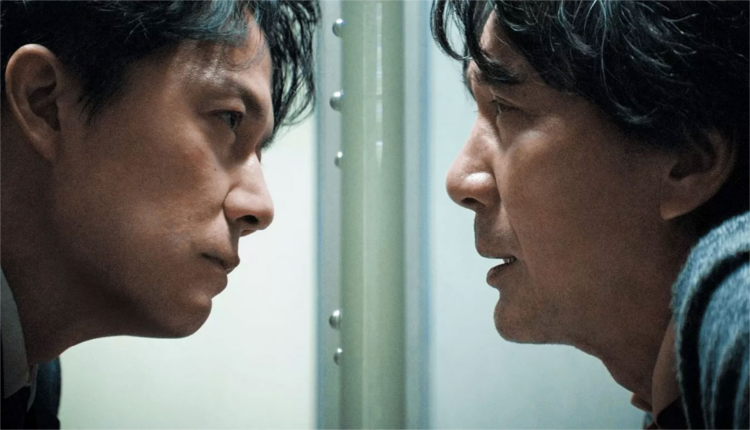Film Review | Japanese Thriller The Third Murder Lacks Thrills
For those who are aware of the works made by filmmaker Hirokazu Kore-eda, an eyebrow might be raised upon seeing the title of his latest offering. Kore-eda is widely known for his social dramas that explore the nuances of familial discord, the struggle to bridge the generation gap and the haunting, irrepressible memory of tragedy. The Third Murder already suggests a departure. Ironically though, the film’s biggest failing is that it’s not enough of a departure. His new film is indeed a dark and dreary ‘whodunnit’. Yet, commitment to his trademark, stylistic touches – lengthy scenes of conversation, detailed character studies, realistic recreation – works against him in a genre film that should feel exciting but ends up feeling exhausting.
The Third Murder opens with its titular crime; a late middle aged, former convict called Misumi is shown killing his factory boss with a wrench at the bed of a river. He then pours gasoline over the corpse and burns it with a match to dispose of the body. After Misumi confesses to the authorities, his legal counsel seeks help from his firm partner Tomoaki Shigemori (Masaharu Fukuyama) to prevent his client from getting the death penalty. This seems a likely prospect. Shigemori is a weary careerist and thinks he seen it all before, but the case ends up being a disillusioning one that opens his eyes to the justice systems inability to reveal the whole picture.
Kore-eda favours ambiguity over incident and the film suffers for it. That opening coda is later revealed to be a bit of a misdirect, with the scene being a demonstration of what may happened as oppose to a definitive recreation. Misumi would seem a safe bet on first inspection. He’d already spent time in prison for two murders in his past and as mentioned, he confessed to the crime. The issue isn’t that The Third Murder sets out to be ambiguous and abstruse – the best movies in the genre sometimes are – but rather the cheap ways the film choose to keep its audience in the dark. Misumi changes his version of events so much and so early on that one quickly realises there’s no point in caring what he has to say after his third or fourth appearance. He also seems so wilfully inconsistent in terms of character that after several scenes he begins to feel more like a plot device than a human being.

The coldly matter of fact Shigemori is all about what the law can prove and doesn’t really have much time for fretting about a pursuit of the truth. He works on getting the best deal for his client at every turn, focusing on minor details of the case to reduce the sentence by any means necessary. This results in one particularly silly scene where a prosecutor lambasts our protagonist for defending a seemingly obvious killer like Misumi. One would think a fellow lawyer would understood the need for reasonable due process.
As Shigemori delves deeper into the case, he comes to realise the law’s version of events is only that, a version of events. He becomes more and more embroiled in the victim’s family, realises that guilt may lie elsewhere and that punishment isn’t something that only the state gives out. The man who died may have a shady past of his own and having him out of the picture may have even have been better for everyone. Misumi could be a cold-blooded killer, a righteous saviour or completely innocent, you decide.
The audience is left with several possibilities to the answer of the ‘whodunnit’ but the film never settles on one. The Third Murder tries to say something about the subjective nature of truth and how the black and white worldview of the courts is not up for to task to tackle the messy grey area of morality. The real truth is that it all ends up being deeply unsatisfying. These are weighty themes but Kore-ada just seems intent on pulling the rug instead provoking deep thought about complex issues. The film takes so many left turns that it just goes nowhere. It’s frustrating filmmaking: scenes run on for far too long, top much focus is given on the minute details of the procedural side of things and the characters lack so much as an ounce of personality.
Kore-ada is no doubt a talent and may be one of his country’s best directors but he forgot to make this thriller thrilling. The film isn’t a disaster, in fact it’s quite polished. All the actors do their bit, the scenery and shot composition is often stunning and the mood is pitched perfectly. The problem is that The Third Murder can’t decide if it’s a straightforward, engaging procedural or a contemplative drama with high, cerebral ambitions. It ends up being neither and I ended up being bored.

